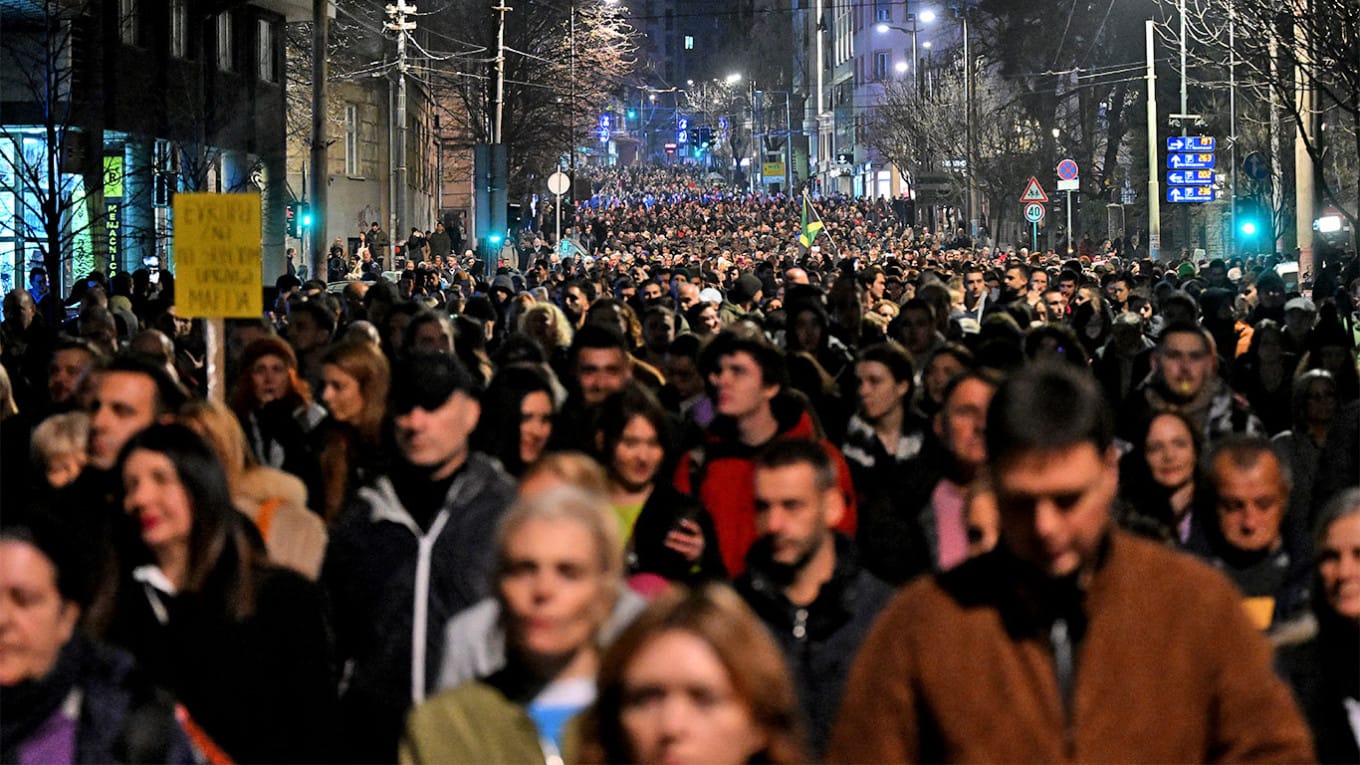The arrival of the New Year is traditionally a time of celebration, joy, and reflection for many around the world. However, in Serbia, this year’s festivities took an unexpected turn as thousands of citizens chose to channel their energy into antigovernment protests rather than the usual parties and fireworks. This shift highlights a deepening dissatisfaction with the current political climate and the administration’s handling of various issues affecting the populace.
The protests began to gain momentum in the days leading up to New Year’s Eve, as social media platforms became inundated with calls for citizens to gather in public spaces. What was initially planned as a night of celebration quickly transformed into a significant demonstration against the government. The atmosphere was charged with a sense of urgency as people took to the streets to voice their frustrations over a range of issues, including economic hardship, corruption, and a perceived decline in democratic freedoms.
As midnight approached, rather than the customary cheers and countdowns, protesters gathered in the central squares of major cities, including Belgrade, Novi Sad, and Niš. Many held placards with slogans demanding change, while others chanted slogans calling for accountability from their leaders. The decision to protest during a time typically reserved for festivities underscores the seriousness of the grievances that many Serbians feel compelled to address.
The backdrop of these protests is a series of events that have sparked widespread discontent among the population. Economic challenges, exacerbated by the global pandemic, have left many struggling to make ends meet. Additionally, allegations of corruption within the government have fueled skepticism among citizens regarding the integrity of their leaders. Concerns about media freedom and the suppression of dissenting voices have further contributed to the growing unrest, leading many to believe that their rights are being undermined.
The protests have also been characterized by a strong sense of solidarity among participants. Families, friends, and even strangers joined together, united by a common cause. The collective determination to demand change was palpable, as participants expressed their hopes for a better future for Serbia. This sense of community and shared purpose has been a defining feature of the protests, as individuals from diverse backgrounds came together to voice their concerns.
Authorities responded to the demonstrations with a mix of caution and restraint. While there was a noticeable police presence in major cities to ensure public safety, the government appeared to recognize the significance of the protests and the need to allow citizens to express their views. This approach reflects a delicate balance between maintaining order and acknowledging the voices of the populace.
International observers have taken note of the protests, viewing them as a significant indicator of the political climate in Serbia. The decision of thousands to forgo traditional celebrations in favor of activism may serve as a wake-up call for the government, urging leaders to engage with the concerns of their citizens. The protests could potentially lead to a broader dialogue about the future of governance in Serbia and the need for reforms that address the pressing issues facing the nation.
As the New Year unfolds, the protests may pave the way for further demonstrations and discussions about the direction of Serbia’s political landscape. The commitment of citizens to advocate for change, even during a time of celebration, highlights the importance of civic engagement in shaping the future of their country. This moment may mark a turning point in the ongoing struggle for democracy and accountability within Serbia.
In conclusion, the decision of thousands of Serbians to transform their New Year celebrations into antigovernment protests reflects a significant shift in public sentiment. The convergence of traditional festivities with political activism underscores the urgency of the issues at hand and the determination of citizens to demand change. As the world watches, the unfolding events in Serbia may serve as a powerful reminder of the role that civic engagement plays in shaping the future of any nation.



